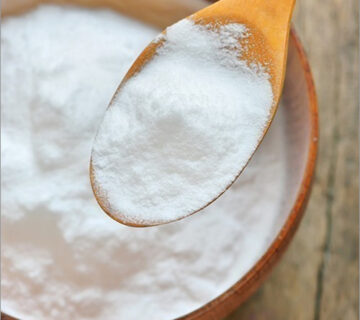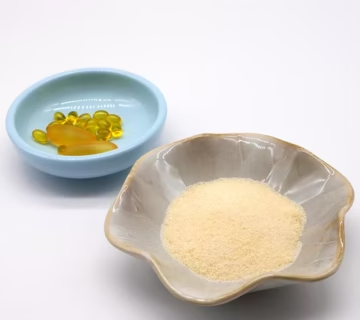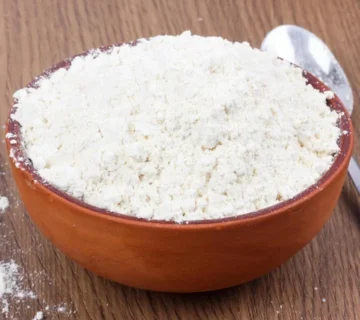In large-scale bakery production, every ingredient plays a pivotal role, and a single misstep can disrupt both quality and efficiency. Among all the raw materials, cocoa powder stands out as a cornerstone—not just for its rich flavor and appealing color, but for the critical texture and functional properties it brings to baked goods. From chocolate cakes and cookies to pastries, fillings, and frostings, the type and quality of cocoa powder you choose can dramatically affect dough consistency, moisture retention, flavor depth, and even shelf life. Sourcing the right cocoa powder in bulk is therefore far more complex than simply opting for the cheapest option available; it requires careful consideration of factors such as fat content, alkalization, particle size, and supplier reliability.
For production managers and procurement officers, selecting a trusted supplier is about more than securing raw materials—it’s about guaranteeing seamless operations, minimizing downtime, and ensuring consistent product quality across thousands of units. A dependable supplier also provides the documentation and traceability needed for local and international regulatory compliance, which is increasingly critical for bakeries targeting premium markets or exporting globally.
We’ve worked with bakery facilities across multiple regions and production scales, from mid-sized artisanal plants to large industrial operations. In our experience, the difference between smooth, efficient production and costly interruptions often comes down to the choice of cocoa powder supplier and understanding the nuances of the ingredient itself. This guide dives deep into everything industrial buyers need to know about sourcing cocoa powder for the bakery industry, including practical procurement strategies, production tips for large-scale operations, supplier comparisons, and insights on premium brands that can elevate your bakery products to the next level.
Understanding Cocoa Powder for Baking
Cocoa powder is the dry, powdered form of roasted cocoa beans after most of the cocoa butter has been extracted. In bakery applications, it is valued for:
- Flavor intensity: Deep chocolate notes enhance cakes, cookies, frostings, and pastry fillings.
- Color: Provides the rich brown hues consumers expect.
- Functional properties: Influences dough structure, moisture retention, and fat balance.
Types of Cocoa Powder for Bakeries
- Natural Cocoa Powder: Light-colored, acidic, commonly used in recipes with baking soda for leavening.
- Dutch-Processed (Alkalized) Cocoa Powder: Darker, smoother, less acidic, ideal for premium pastries and chocolate beverages.
- Low-fat vs. Standard-fat: Fat content ranges from 10% to 24%, impacting emulsification, consistency, and mouthfeel.
Understanding these distinctions is essential. For example, Dutch-processed cocoa may require adjustments in leavening agents or sugar ratios to achieve optimal bakery performance.
Why High-Quality Cocoa Powder Matters in Bakery Production
1. Consistency Across Batches
Variations in particle size, fat content, or alkalization can lead to uneven cake textures or frosting separation. Reliable suppliers provide batch-to-batch consistency, minimizing production waste and ensuring uniform quality.
2. Production Efficiency
Premium cocoa powders integrate smoothly with mixing, dough sheeting, and enrobing processes, reducing machine wear and downtime. In our experience supplying manufacturing facilities, using consistent cocoa powder reduces cleaning cycles and improves throughput.
3. Flavor and Market Differentiation
Bakery consumers are sensitive to flavor nuances. Selecting cocoa powder with rich, stable flavor elevates product appeal, particularly for premium bakery lines or export markets.
4. Regulatory Compliance
Many industrial bakeries must meet food safety and certification standards. Trusted suppliers provide documentation for allergen control, origin verification, and organic or fair trade certifications.
Selecting the Right Cocoa Powder Supplier
Choosing a supplier involves more than comparing prices. Consider the following factors:
| Factor | Why It Matters | Practical Advice |
|---|---|---|
| Certifications | Ensures quality and compliance | Request ISO, HACCP, organic, or fair trade documentation |
| Consistency | Critical for high-volume production | Ask for sample lots and CoA verification |
| Supply Reliability | Prevents production interruptions | Evaluate past performance, warehouse capacity, and lead times |
| Quality Tier | Determines flavor depth and functional properties | Compare premium brands like Latamarko with standard suppliers |
| Pricing & Contract Terms | Bulk cost impacts overall production budgets | Negotiate long-term agreements with volume discounts |
At MT Royal, we supply manufacturers with a wide range of brands, balancing competitive pricing with industrial-grade quality. We’ve seen production managers benefit from establishing long-term partnerships that ensure uninterrupted supply and reliable product outcomes.
Common Pitfalls in Bakery Cocoa Procurement
Even experienced production supervisors sometimes face challenges with cocoa powder procurement:
- Ignoring fat content variations: This can affect dough elasticity and frosting stability.
- Overlooking moisture levels: Excess moisture may lead to clumping, spoilage, or microbial contamination.
- Focusing solely on price: The cheapest option may compromise traceability or batch consistency.
- Assuming all cocoa powders are interchangeable: Industrial processes often require specific particle size, alkalization, and fat content.
Pro tip: Always request Certificates of Analysis (CoA) for each shipment. Small verification steps prevent costly disruptions on the bakery floor.
Step-by-Step Procurement Guide for Industrial Bakeries
Step 1: Define Production Requirements
Identify the applications—cakes, cookies, pastries, or fillings—and the cocoa specifications required for optimal functionality. Consider fat content, alkalization, and flavor profile.
Step 2: Shortlist Reliable Suppliers
Look for companies with industrial experience, consistent supply chains, and certification compliance. Premium options from European suppliers, particularly Spanish-origin Latamarko, often excel in flavor stability and production consistency.
Step 3: Conduct Pilot Testing
Before bulk ordering, test small batches in your bakery environment. Evaluate dough behavior, emulsion stability, and end-product color and taste.
Step 4: Negotiate Supply Terms
Agree on lead times, shipment schedules, and contingency plans for unforeseen delays. Bulk contracts often include volume discounts and priority fulfillment.
Step 5: Implement Proper Storage Protocols
Store cocoa powder in cool, dry, odor-free environments. Sealed, food-grade containers maintain product integrity, flavor, and moisture balance.
Step 6: Monitor Quality and Feedback
Perform random inspections, compare batches, and maintain open communication with suppliers to ensure continuous improvement.
Industrial Benefits of Partnering with Trusted Suppliers
Reliable suppliers deliver more than just ingredients—they support operational efficiency:
- Supply chain transparency: Traceability ensures compliance with international bakery standards.
- Technical support: Experienced suppliers offer guidance on storage, blending, and production integration.
- Cost efficiency: Bulk contracts reduce cost-per-unit and minimize waste.
- Reduced downtime: Reliable shipment schedules prevent production halts.
We’ve noticed that factories adopting a strategic supplier partnership often see a measurable reduction in waste and improved overall throughput.
Premium Cocoa Options: European and Spanish Brands
While standard suppliers meet basic industrial needs, premium European brands offer additional advantages:
- Superior batch-to-batch consistency
- Rich, stable flavor profiles
- Detailed quality reporting and traceability
Spanish manufacturers like Latamarko have set benchmarks in durability, precision, and flavor control. For bakeries producing high-end or branded products, integrating premium cocoa powder can elevate both product appeal and operational reliability.
FAQs from Bakery Production Managers
Q1: How should cocoa powder be stored in bakery facilities?
A: Keep in a cool (18–22°C), dry area with <50% relative humidity. Use sealed, food-grade containers, and avoid exposure to strong odors.
Q2: How can I ensure batch consistency?
A: Use Certificates of Analysis, perform pilot production tests, and maintain a strong relationship with suppliers.
Q3: Can cocoa powders from different suppliers be blended?
A: Only after thorough testing. Differences in fat content, particle size, and alkalization can affect texture, color, and flavor.
Q4: Which certifications are essential?
A: ISO, HACCP, organic, fair trade, or local regulatory approvals depending on your market and end products.
Real-World Industrial Example
A large-scale European bakery faced inconsistent cocoa performance in their pastry line. By switching to a certified supplier offering Latamarko premium cocoa:
- Cake texture became uniform across batches
- Frosting stability improved
- Downtime due to ingredient inconsistency was virtually eliminated
This demonstrates the tangible impact of strategic cocoa sourcing on both operational efficiency and product quality.
Comparison Table: Standard vs. Premium Cocoa Powder
| Feature | Standard Bulk | Premium (Latamarko/European) | Production Impact |
|---|---|---|---|
| Batch consistency | Moderate | High | Ensures uniform dough and final product |
| Flavor profile | Basic | Rich, nuanced | Elevates premium bakery products |
| Certification | Basic | Detailed traceability | Simplifies compliance and export documentation |
| Price per ton | Lower | Higher | Justified for high-end lines |
| Supply reliability | Average | High | Reduces risk of production halts |
| Technical support | Limited | Available | Optimizes bakery operations |
Strategic Considerations for Large-Scale Bakery Production
- Inventory planning: Align bulk orders with production schedules to avoid shortages or overstock.
- Quality assurance: Implement random batch inspections, sensory checks, and CoA verification.
- Supplier diversification: Maintain multiple certified suppliers to mitigate risk.
- Sustainability initiatives: Leverage supplier ESG practices for corporate reporting and market positioning.
Closing Reflection
Selecting the right cocoa powder for the bakery industry is a strategic decision that affects product quality, production efficiency, and market reputation. By partnering with experienced suppliers like MT Royal, and incorporating premium brands such as Latamarko, you ensure reliable supply, consistent flavor, and operational confidence.
The difference between a good bakery line and a great one often lies in the details—ingredients, supplier expertise, and quality control. Cocoa powder may seem like a commodity, but in industrial bakery operations, it is a critical asset that can elevate your products, streamline your processes, and strengthen your brand’s competitive edge.
latamarko alkalized cocoa powder lm60
cocoa powder for chocolate production-Best price
Food industry raw materials – list of products
Types of Gelatin from Turkish Manufacturer
Alkalized Cocoa Powder Bulk Supplier







No comment